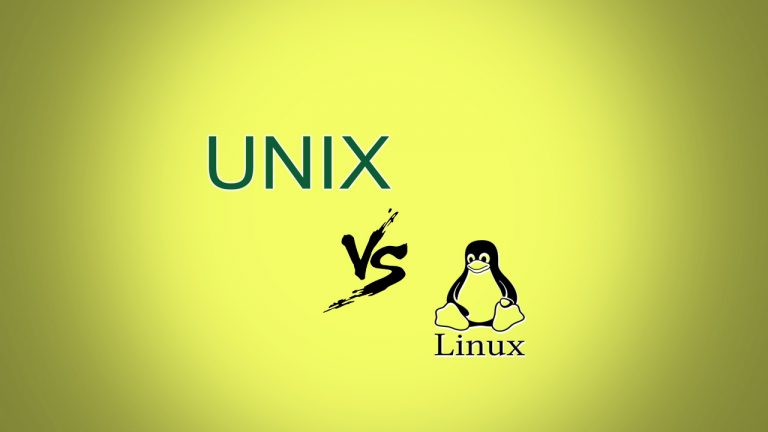Unix and Linux are two popular operating systems. What is the difference between them? Which one should you choose? To answer these and many other questions that you may be having, we are going to analyze each OS and then break down the differences between Unix vs Linux.
Contents
What is Unix?
Simply defined, Unix is an open source operating system that is mainly used for running PCs, internet servers and workstation. It was developed in the 1970s at AT&T Bell Labs and was written in C programming language.
What is Linux?
Linux is a family of free and open-source software operating systems based on the Linux kernel, an operating system kernel first released on September 17, 1991 by Linus Torvalds. Linux is typically packaged in a Linux distribution (or distro for short).
Also, Read: 5 Best Linux Distributions for Beginners
Unix vs Linux Comparison
Now that we know what these two operating systems are, let’s go ahead and look at the difference between Unix and Linux.
1. Cost: Unix vs Linux
Which one is more expensive or cheaper between Unix and Linux? Linux is an open source OS hence it is freely distributed. You can easily download a copy of Linux from the internet or get it free through books and magazines. However, you will need to pay for the server versions and Linux OS for large organizations.
On the other hand, Unix is quite costly. You will need to part with some money in order to get one. However, there is no general pricing for the OS. Instead, different versions of Unix have different price tags. For instance, the cost of Unix server ranges between $25,000 and $249,000.
2. Security Level: Unix vs Linux
Which of the two operating systems is more secure? While both the operating systems are vulnerable to different security threats, Linux is more secure than Unix. First, Linux uses the same characters that are in Unix. This includes the isolation of tasks in a multi-tasking environment. In addition to that, passwords in Linux are encrypted and can be managed remotely.
As an open source OS, bugs in Linux can be easily reported by users and developers. This does not happen in Unix as users have to wait for a bug-fixing patch to be developed. The process can take long unlike in an open source environment where problems and bugs are fixed within a short time.
3. User Base: Unix vs Linux
Who uses the two operating systems? Linux is an ordinary operating system that can be used by anyone. Its userbase constitutes of ordinary computer users to experienced programmers.
On the other hand, Unix can be used on PC, workstations and internet servers.
4. Portability
In terms of portability, Linux carries the day. The OS is very portable such that it can be booted from a USB stick. Unix, on the other hand, is relatively rigid hence not portable.
5. Source Code
Given that Linux is an open source operating system, its source code is available to the general public. Anyone can see the source code that is used to run the system. The source code for the Unix OS is not available to the public.
6. Market share: Linux vs Unix
Market share can be interpreted as the number of people using a particular OS. Even though Linux came several years after Unix it has a bigger market share. The operating system has been installed in more than 25 million machines compared to Unix which has approximately 5.5 million installations.
So, between Unix vs Linux, which is the best OS? It all depends on what you want to do with the OS. Otherwise, both have their strongest points and as well as limitations.



